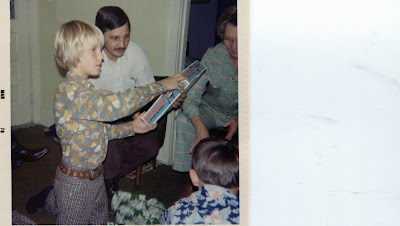When Dad was diagnosed with ALS, we were desperate to find information about what was ahead. Sure, we knew the inevitable end. That it is a fatal disease, with progressive deterioration, no definite cause, no medications to help, and no cure. I am a nurse, and yet had pretty much zero experience with ALS. I remember one patient in all my years. His speech was significantly affected, and he would come in to the clinic with questions written out for me. I would sit there with D, going through his cardiac meds and he would cry and drool. And I would cry, because I felt so bad for the poor guy. His mind was clear, speech was gone, and I wondered why would anyone have to go through that. Then my father was diagnosed.
We combed the internet looking for answers. I knew where the ALS road ended, but needed to know the how's and most importantly, what would the end be like. Would he suffer? How bad would it get? How long would it take? Dad's neurologist was great, and he liked her. But we didn't get alot of specifics, like an estimate of how long. Oh sure, we got the textbook 3-5 years from diagnosis, but no real info. I know that it's hard for a physician to predict, that every case is different, etc. But I was really wanting answers.
Part of our reason for starting this blog was to help others looking for information.
In Dad's case, things progressed quickly. He had involvement of his shoulder girdle/upper chest muscles. The chest muscles and diaphragm are involved in breathing, and the weakness affected his breathing fairly quickly. His pulmonary function testing the day of diagnosis was nearly normal. Yet even then, he got short of breath when we were at the Omaha zoo last July. The fatigue was immediate and quickly progressed. He changed so fast, that we even wondered if he had something else, like an undiagnosed cancer or something along with the ALS. We could tell that it wouldn't be the usual 3-5 year timeframe.
He was unwavering in his decisions to not accept tube feedings or a ventilator. We respected that, and even admired the courage that those decisions took. For comfort, he tried BiPAP, but was miserable. He decided that he did not want to live that way, and stopped using the BiPAP after a very short time. It may have given him a little bit more time, yet it really didn't seem to be giving him quality.
Accepting hospice was a big step for Dad, and for all of us. We are so glad that we did. They took care of bringing the meds, talking to the doctor about issues and med adjustments. Most importantly, it relieved some of the pressure for us, of trying to see as a nurse would. It was amazing to me that any objectivity and nursing judgment just evaporated. I just could not see clearly. Even at the end, when he was laying there with agonal breathing, I couldnt see how close the end was. He wasn't a patient. He was Dad.
My main question was would he suffer? Would he fight at the end, would the breathing be so bad that he would be air hungry and miserable? The answer to that is yes....but. He definitely suffered, for nine months with decreasing muscle function and loss of independence. He had a profound malaise, and incredible weakness. His breathing was tough, and looking back, I believe that it was worse than he ever let on. He didn't/couldn't eat, and I believe that it was a conscious decision. Later, he couldn't swallow. He lost his speech, and the last several days wrote us short little notes. His life as he knew it changed, and he suffered.
But at the end, it was peaceful. Over the last several days, he became quieter, weaker and less responsive. He received morphine continuously those last couple of days. I believe that he was kept comfortable. He stopped responding at all. He was surrounded by family that loved him. We talked to him, and sat with him, and held his hands.
And on a sunny April morning, he quietly passed into God's Kingdom while surrounded by his wife, son, daughters and oldest grandson. It was peaceful, and even beautiful.
So to any one involved in the ALS fight, the end can be comfortable and peaceful.
The courage that Bill Haagenson showed from the moment of diagnosis, was amazing. He took it like a man, head high and brave....why am I not surprised? Love you Dad. Still so proud of you.
Lynette








































